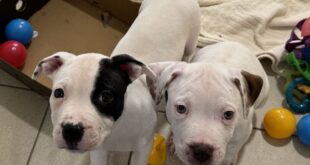
A vet has revealed why some cats may only eat when their owner is present and what this behaviour signifies.
Cat lovers are well-acquainted with the peculiar quirks of their feline friends, from kneading to following their humans around the house, they have a unique way to express their thoughts and emotions.
Dr Katrina Warren, a veterinarian known for her appearances on the TODAY show, has discussed on her social media the reasons behind cats sometimes preferring their owners’ company during mealtime and its implications.
“Did you know there are some cats that like to have their owners around when they eat, and they eat a whole lot more when they are there or really close to them,” Dr Katrina shared in her TikTok video.
She elaborated: “It’s got a name called affection eating, and it can be caused by things like stress such as moving house or the arrival of a new baby. It’s often seen in anxious cats that like the reassurance of their owners always around them, so clingy cats. And cats that were hand raised as kittens or weaned really early.”
Although this trait isn’t inherently problematic, provided the cat consumes enough food, as some pet parents might appreciate the sense of security they provide, it could become an issue if it leads to changes in the cat’s dietary patterns.
“Affection eating can be a problem if your cat won’t eat when you’re not around and also if your cat is showing a sudden change of behaviour and becoming suddenly clingy,” she warned. “It’s really important to get a veterinary check just to rule out any underlying medical issues that could be causing this.”
In cases where stress is the known cause, Dr Katrina advises pet owners to create a peaceful sanctuary within their homes for their cats to find calmness during times of stress or anxiety.
“A nice quiet room is ideal with a climbing tree, scratching post and a litter box somewhere that they can go as a retreat anytime of the day just to have some calm time,” she recommended.
As per the guidance from the San Francisco SPCA, engaging regularly with your furry friend is vital for forging a strong bond and promoting a sense of tranquillity in your pet.
Cat enthusiasts eagerly shared testimonials about their feline companions’ peculiar dining customs, including one person who disclosed: “My cat calls me to watch her eat.”
Another described their experience: “My cat runs to the bowl as soon as I’m in the room. He also follows me and meows constantly. I brush him nightly and I give him lots of attention but he’s STRESSED.”
This individual continued their story, mentioning: “He’s also 13 years old. So I been thinking he has a touch of kitty dementia.”
On the flip side, some cat parents reported that their pets showed a starkly different attitude, exhibiting a preference to dine alone, undisturbed by human presence – a trait Dr Katrina interprets as a sign of a more independent nature.
 Latest Breaking News Online News Portal
Latest Breaking News Online News Portal






